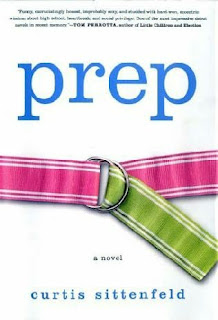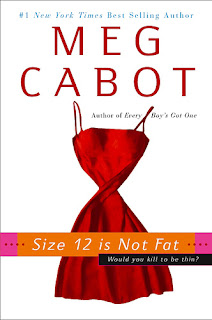Hilary Mantel is one of those authors that I feel like I should really love. She's written a ton of best selling and highly regarded books. She's often raved about by one of my best friends. She's always mentioned with a tone of 'well, great authors like her…' As such, I keep trying to like her. This is the second Mantel book I've read and going into it, I was really excited. I mean, look at the cover. It looks like a bored Chaucerian woman vacuuming. This could only be amazing.
Beyond Black tells the story of Alison Hart, a (really) full figured psychic plying her trade around the suburbs on London. Unlike most psychics, she has a real gift, seeing ghosts pretty much all the time and, by such, revealing to the readers that they're really just mundane, see-through people. She has a spirit guide named Morris, a horrid, dirty little man that cracks rude jokes all the time and makes Alison uncomfortable. She also has an assistant named Colette, a no nonsense business girl who doesn't quite believe all this psychic stuff but just divorced her husband and needs something in her life like this.
The novel follows the two women from when they begin their partnership through their lives over a seven year period. The tale is fairly linear but does jump back several times to explore Alison's childhood, growing up with a prostitute for a mother and a constant stream of strange and threatening men through her house. As Alison is a psychic, she doesn't even get a reprieve from because if these men are dead, they can find their way to her door again. She is constantly on the look out for dangers from her past messing up her current life.
One of the strange things about this novel is that it really doesn't have that strong of a plot. There's no overarching theme other than just general life. Alison and Colette meet, work together, end up investing in a house. Sometimes they meet people. Generally they hate their neighbors. I suppose some readers found it refreshing to have a book just about living. I, however, found it made the book harder to read. I wanted to have something to be curious about. Really all we had that was mysterious were bits of Alison's past (something that doesn't get resolved until the last forty or so pages.) There needs to be a bit of forward momentum to pull me through a novel and I found myself struggling to make it through the book.
Another problem I had was that the characters felt extremely unlikable to me. In the beginning, I was curious and looked forward to learning more about the spirit world, exploring the relationship between Alison and Colette and enjoying the journey. I instead found that little was said about the spirit world that kept me interested and the characters of both Alison and Colette really just deteriorated as the story went on. I was interested in them both at the beginning, wanting to find out more about Alison's past and explore her new relationship with Colette. However, Colette just became cruel and controlling while Alison meekly sat in the corner and felt pained. It was really hard to like either of them by the end of novel. I found myself just wanting it to be over.
I've read Wolf Hall by Hilary Mantel, the Tudor novel that won the Booker a few years back. That book is marvelous (although a tiny bit tedious.) I cannot deny that Mantel is a very good writer who can pack a lot of detail and clarity into a paragraph. However, I feel like Beyond Black was a bit of a mess. Looking at the reviews and the awards that Beyond Black was up for, I know that I am perhaps in the minority but I wanted more from this book than I got. It is unfortunate. I would read Mantel again but I think I'll stick to the historical fiction this time.









